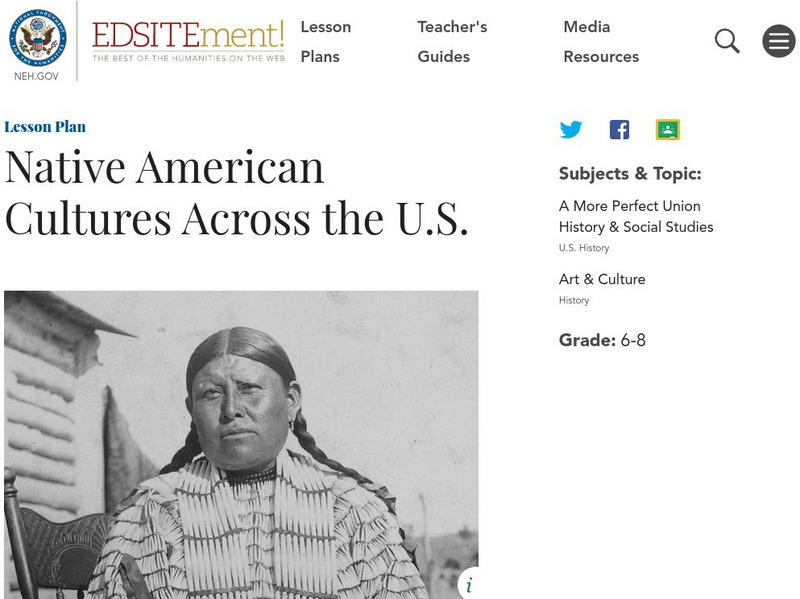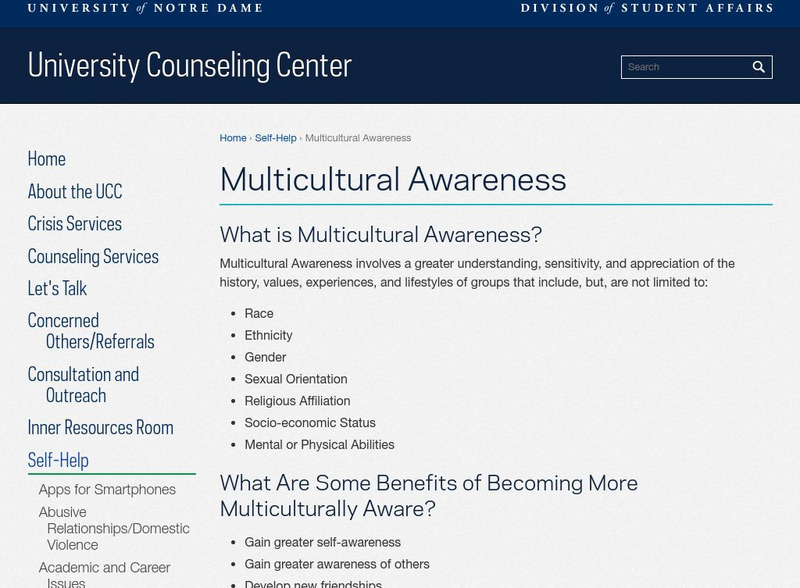Hi, what do you want to do?
Curated OER
Insert Essay Phrases
In this phrases instructional activity, students insert phrases that are given to them into sentences. Students insert 10 phrases into the beginning of sentences.
Curated OER
Breaking Down Prejudice
Students examine the clauses in the South African constitution. Using the internet, they identify the roles of the government, citizens and identifying discrimination that still exists in the country. To end the lesson, they are given...
Curated OER
"how To Think Like an Archaeologist" Suggested Pre-visit Activity for Historic Jamestowne
Students study grocery receipts to simulate the archaeological activity of classifying items. They discuss the receipts as if they were find lists.
Curated OER
Networking at Early James Fort
Students examine the impact of global trade on regional civilizations of the world after 1500. They research and analyze images of pottery excavated at Jamestown, and create a poster that presents information about world trade networks...
Curated OER
Making Good Decisions
Students practice the skill of reasoned decision making. In this making decisions lesson, students read from the website 'Little Planet Times' and use the 'Making Good Decisions' E-Sheet to help with the article. Students divide into...
Curated OER
Groups We Belong To
Students think about and identify different kinds of groups. They see that people are born into certain groups and that they join others. They explore the circumstances that surround group affiliation and participation.
Curated OER
What Lies Beneath
Pupils conduct Internet research on the history and archaeological excavations at historical Jamestown. They explore various websites, and develop a Powerpoint presentation to present to the class.
Curated OER
History of Japan
Students research the mythological and factual founding of early Japan. They compare and contrast the two accounts. As an assessment activity, they fill out a chart that compares and contrasts the facts and myths surrounding Japanese...
Curated OER
Religions of Japan
Students explore, analyze and study the religions that originated in Japan, including Shintoism and Zen Buddhism. They assess the beliefs of each religion and compare/contrast all the Eastern Religions and view their people and...
Curated OER
Beliefs/Teachings of Islam
Students listen to a guest speaker lecture on the beliefs of Islam while taking down notes and complete a KWL chart in their notebook. They then discuss in pairs the differences and similarities they note etween Islam and their own...
Curated OER
Elder's Cloud Observations
Students study cloud types and Native language terms for clouds and cloud types. For this cloud types lesson, students listen to a Native American speaker discuss clouds and the words used to describe clouds. Students complete a...
Curated OER
There Were Many Paths to Freedom
Middle schoolers explore the Underground Railroad in the history of Pennsylvania.
Curated OER
To Tell the Truth: Will the Real Warren G. Harding Please Step Forward!
Tenth graders play the role of historians, working to become experts on Warren G. Harding's private and public life. They become contestants in a simulation of the popular 1970s television show "To Tell the Truth".
Curated OER
Digging Deeper: Mission San Sabá
Seventh graders view a painting of the destruction of Mission San Saba in Texas. They discuss the painting and identify information that they can infer from the painting.
Curated OER
Two Ways of Life
Students visit Internet sites to compare ways of life of Indians on western Texas frontier and U.S. military men at Texas forts, and draw pictures to illustrate clothing, transportation, weapons, and shelter of both Indians and U.S....
Curated OER
What Difference Does it Make How Old I Am?
Students identify subtle messages advertisers send (often unintentionally) about age in the course of trying to sell products; to analyze the consequences, both positive and negative, those messages have on the American audience; to...
Curated OER
Institution vs. Individuals
Students examine and evaluate how the U.S. government dealt with the Native American populations during westward expansion. They complete a class KWL chart, take notes during a teacher-led lecture. Students read about the Battle at...
Curated OER
Calendar and Opening
Students review the days of the week and tell what the current day is by singing a song. They fill in the sentence telling the day of the week it is and then discuss what day yesterday was and the name of the day tomorrow and then talk...
Curated OER
Weather Instruments
Young scholars research weather instruments. For this weather lesson, students use the Global Climate DVD and take notes on weather instruments. Young scholars answer multiple choice questions on a worksheet.
National Endowment for the Humanities
Neh: Edsit Ement: Native American Cultures Across the United States
Students explore different aspects of the cultures of the First Americans in this lesson plan. Stereotypes are often associated with Native Americans through movies and in the context of the Thanksgiving holiday. Specific information and...
University of Notre Dame
University Counseling Center: What Is Multicultural Awareness?
This resource provides a self-help menu of topics for exploring cross-cultural understanding. Thoughtful guidance for overcoming stereotypes and for increasing one's multicultural awareness.
Other
U.s. Coast Guard: International Military Student Guide to American Culture
The U.S. Coast Guard has taken American culture and condensed it for foreigners coming to the United States. Topics include major cultural elements, verbal greetings, classroom etiquette, slang, etc. This guide has generalizations and...
Countries and Their Cultures
Countries and Their Cultures: Tropical Forest Foragers
The term "tropical-forest foragers," or "pygmies," refers to ethno-linguistically diverse peoples distributed across the forested regions of Central Africa who are particularly short in stature and who traditionally have lived by...



























